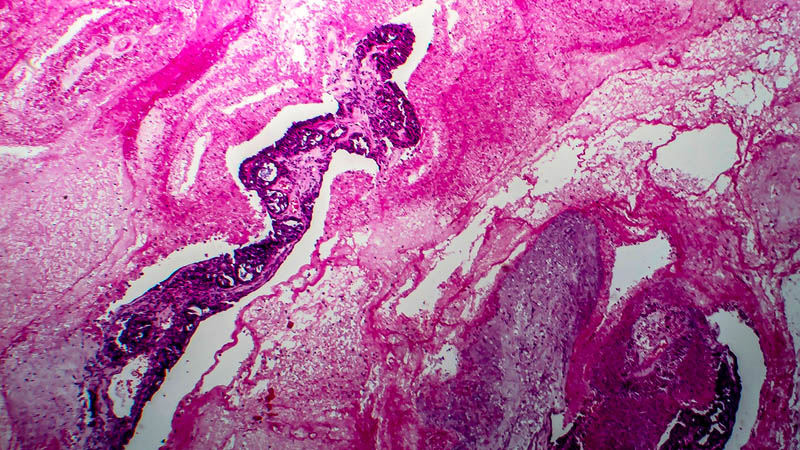Selected prognostic factors in ovarian cancer
Janina Markowska1, Wiesława Bednarek2, Anna Markowska3
 Affiliacja i adres do korespondencji
Affiliacja i adres do korespondencjiThe authors discuss several predictive factors related to ovarian cancer, both those associated with prognosis and those potentially useful in targeted therapy thereof. Expression of mRNA BRCA1, VEGF and its receptors, CXCR4, HER-2, HIF-1α, COX-2, NM-23, KAI 1, IGF-1R, kisspeptin, neuropilin and Prox 1 gene are discussed. Expression of mRNA BRCA1 is associated not only with hereditary ovarian cancer, but also with its sporadic form. Higher expression correlates with a better response to taxanes. Hopefully, mRNA BRCA1 level in women with sporadic ovarian cancer will become a useful parameter, qualifying patients for a particular chemotherapy protocol. BRMS1 acts as a gene inhibiting development of metastases in ovarian cancer. Levels of mRNA for BRMS1 are lower in late than in early stage ovarian cancer. The VEFG family is involved in angio- and lymphangiogenesis and includes 5 glycoproteins (VEGF-A, VEGF-B, VEGF-C, VEGF-D and VEGF-E), which acting upon receptors VEGFR1-3. Neuropilin 1 plays a role in angiogenesis, while neuropilin 2 modulates lymphangiogenesis, similar to the Prox-1 gene. COX-2 mediates the release of pro-angiogenic factors. HIF-1α expression is associated with resistance of hypoxic cancer cells against cytostatics and radiation. Expression of c-Met correlates with poorly differentiated cancer types. The SDF-1/CXCR4 complex plays a key role in the development of cancer metastases. Survivin is present in cancer cells only, where it inhibits apoptosis and promotes the development of cancer. Metastases suppressor gene (BRMS1) and receptors for VEGF, CXCR4, HER-2, HIF-1α and COX-2, may serve as targets for targeted therapy. At present, an increasing number of studies focus on VEGF receptors. Poor expression of NM-23 and KAI 1 correlate with tumor ability to form metastases. The authors discuss the role of biological markers for clear-cell ovarian cancer (IGF-1R and kisspeptin). Promising topics for future studies are survivin, neuropilin and the Prox-1 gene.









